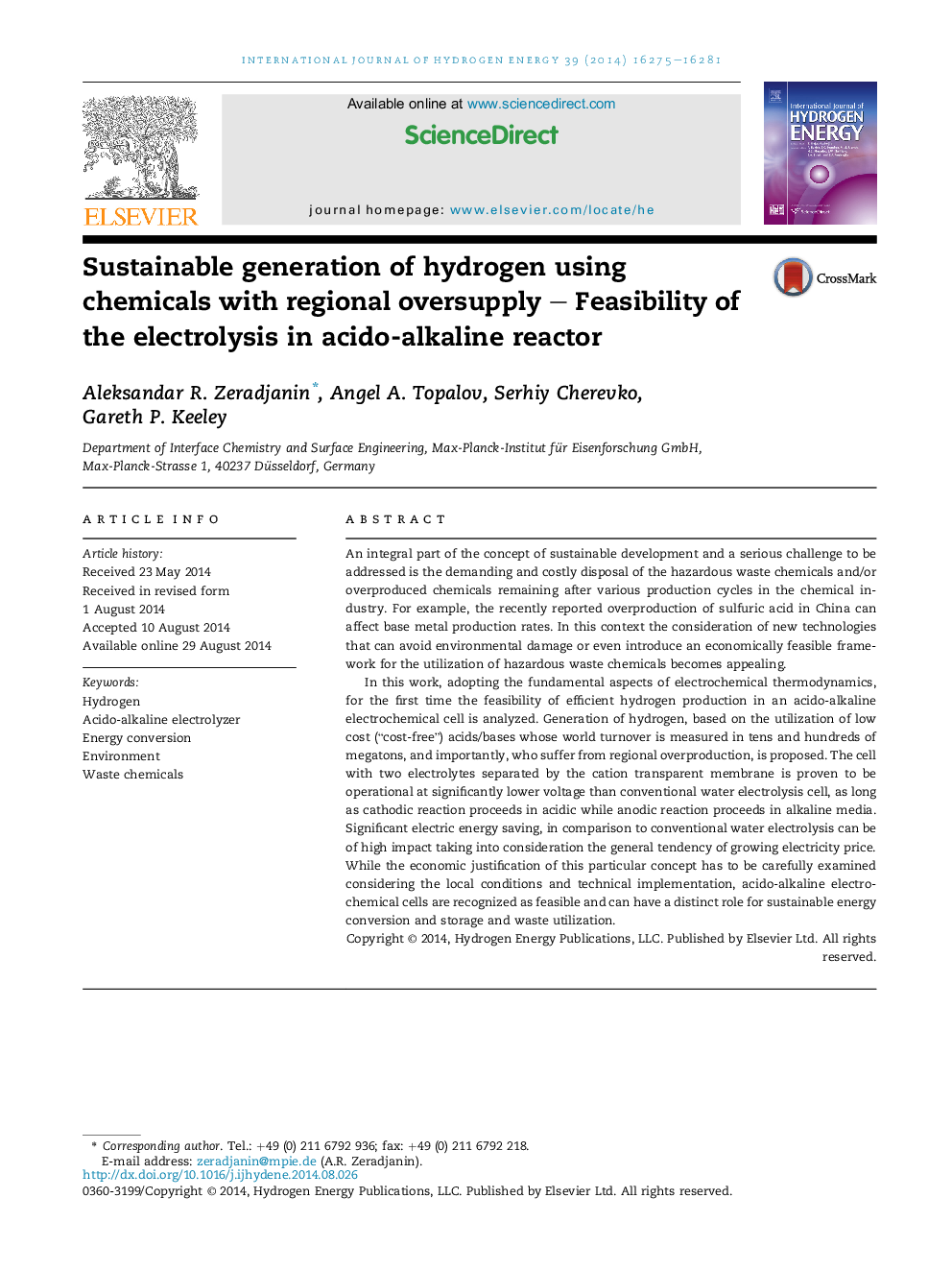| Article ID | Journal | Published Year | Pages | File Type |
|---|---|---|---|---|
| 1280965 | International Journal of Hydrogen Energy | 2014 | 7 Pages |
•Hydrogen is produced efficiently in the acido-alkaline electrochemical reactor.•Voltage lowered several hundreds of milivolts in comparison to water electrolysis.•Sacrifical electrolytes are locally overproduced low cost acids/basis.•Strategic importance of locations of chlor-alkali plants and nonferrous smelters.
An integral part of the concept of sustainable development and a serious challenge to be addressed is the demanding and costly disposal of the hazardous waste chemicals and/or overproduced chemicals remaining after various production cycles in the chemical industry. For example, the recently reported overproduction of sulfuric acid in China can affect base metal production rates. In this context the consideration of new technologies that can avoid environmental damage or even introduce an economically feasible framework for the utilization of hazardous waste chemicals becomes appealing.In this work, adopting the fundamental aspects of electrochemical thermodynamics, for the first time the feasibility of efficient hydrogen production in an acido-alkaline electrochemical cell is analyzed. Generation of hydrogen, based on the utilization of low cost (“cost-free”) acids/bases whose world turnover is measured in tens and hundreds of megatons, and importantly, who suffer from regional overproduction, is proposed. The cell with two electrolytes separated by the cation transparent membrane is proven to be operational at significantly lower voltage than conventional water electrolysis cell, as long as cathodic reaction proceeds in acidic while anodic reaction proceeds in alkaline media. Significant electric energy saving, in comparison to conventional water electrolysis can be of high impact taking into consideration the general tendency of growing electricity price. While the economic justification of this particular concept has to be carefully examined considering the local conditions and technical implementation, acido-alkaline electrochemical cells are recognized as feasible and can have a distinct role for sustainable energy conversion and storage and waste utilization.
Graphical abstractFigure optionsDownload full-size imageDownload as PowerPoint slide
